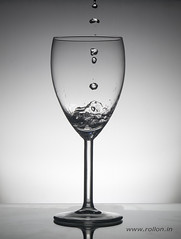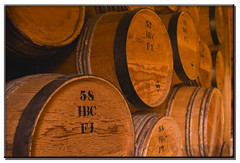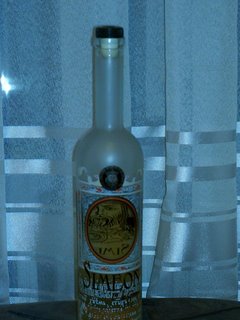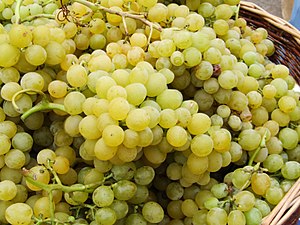 Image via Wikipedia
Image via Wikipedia
Rakia is often called rocket fuel from those outside Bulgaria. This is a term used by many who haven’t even tasted Bulgaria’s national spirit! The concept of using rakia as rocket fuel would probably work as it happens, but then so would whisky, gin, vodka and any other spirit with a alcohol content of 40% +.
Why have I brought up this subject of rocket fuel? Well is came to pass that every day I use a camping stove that boils up the water to make myself a cup of tea at lunchtime. There isn’t any cooking facilities at work hence this system that works very well. It is fuelled by mentholated spirits, which I purchase at a local store priced at 1.50 BGN Leva for 300 ml. This works out at around 4.50-5 BGN Leva per litre. I never though much else about it until I made Hot Rakia Toddy one day for my work colleagues one lunchtime as we were working in sub zero temperatures without any form of heating. As the Rakia was being heated it occurred to me that this Rakia could be used as fuel in place of the mentholated spirits. The idea became even more acute as I realised that this particular Rakia cost only 2 BGN Leva per litre to make as it was worked out on my last grape distillation last month.
So now I use Rakia (a previous batch which is not as good as my current grape Rakia) as the fuel to heat the water each day with the costs at around 30% of the purchased spirit.
So to come round again to the description of Rakia as rocket fuel, well not quite but fuel non-the less. This is another use for this versatile drink that has endless uses.
So now I use Rakia (a previous batch which is not as good as my current grape Rakia) as the fuel to heat the water each day with the costs at around 30% of the purchased spirit.
So to come round again to the description of Rakia as rocket fuel, well not quite but fuel non-the less. This is another use for this versatile drink that has endless uses.
![Reblog this post [with Zemanta]](http://img.zemanta.com/reblog_b.png?x-id=4c3fe270-65d0-407b-a84d-a84a036bb872)

![Reblog this post [with Zemanta]](http://img.zemanta.com/reblog_b.png?x-id=ccf23519-d260-4445-9c6c-54abcfd248d5)

![Reblog this post [with Zemanta]](http://img.zemanta.com/reblog_b.png?x-id=ff3a2166-df1e-44f0-a92f-1608011034b8)

![Reblog this post [with Zemanta]](http://img.zemanta.com/reblog_b.png?x-id=70e00bf9-1636-46c9-8f44-a1938fe80b5b)

![Reblog this post [with Zemanta]](http://img.zemanta.com/reblog_b.png?x-id=7615ef51-914f-4919-be02-3ad4f1839365)

![Reblog this post [with Zemanta]](http://img.zemanta.com/reblog_b.png?x-id=ad1ba60b-fe6e-4a5d-9a23-aa8115e90bda)

![Reblog this post [with Zemanta]](http://img.zemanta.com/reblog_b.png?x-id=976d2479-0ba3-4065-91a8-8018d70c24f4)



![Reblog this post [with Zemanta]](http://img.zemanta.com/reblog_b.png?x-id=beac3b16-e95f-4532-94d5-e0f234b67d39)

![Reblog this post [with Zemanta]](http://img.zemanta.com/reblog_b.png?x-id=b626f805-8f85-411a-b90f-9e42d29f4fa1)

![Reblog this post [with Zemanta]](http://img.zemanta.com/reblog_b.png?x-id=2af319b4-c893-42d4-aa72-b758fa1a00c8)

![Reblog this post [with Zemanta]](http://img.zemanta.com/reblog_e.png?x-id=c9557db5-ab54-4a9e-8efa-a2f473a2cae1)

![Reblog this post [with Zemanta]](http://img.zemanta.com/reblog_b.png?x-id=df2f2708-71af-4cfd-bcf6-75e1bc9a6fc0)
![Reblog this post [with Zemanta]](http://img.zemanta.com/reblog_b.png?x-id=57616db9-2769-4d48-aa8c-c718c208f4bb)


![Reblog this post [with Zemanta]](http://img.zemanta.com/reblog_b.png?x-id=3bc1557b-2169-4a55-a25d-928d407db17c)

![Reblog this post [with Zemanta]](http://img.zemanta.com/reblog_b.png?x-id=1af5a5b9-f7d7-4177-9967-8755367d945b)

![Reblog this post [with Zemanta]](http://img.zemanta.com/reblog_b.png?x-id=c52ee8b0-fe31-4f7c-96ac-2a3336a67367)

![Reblog this post [with Zemanta]](http://img.zemanta.com/reblog_b.png?x-id=5cd9e73a-4c27-40cd-a12b-775df0249cbc)

![Reblog this post [with Zemanta]](http://img.zemanta.com/reblog_b.png?x-id=54744cc9-5b43-4a4b-ab05-987b3c456ba8)

![Reblog this post [with Zemanta]](http://img.zemanta.com/reblog_b.png?x-id=ba7422e9-2791-4ec8-9c71-6cc910625ba6)


![Reblog this post [with Zemanta]](https://img.zemanta.com/reblog_b.png?x-id=7edb65a2-a2bf-4df6-b15e-94148569146a)


![Reblog this post [with Zemanta]](http://img.zemanta.com/reblog_b.png?x-id=6ddf7328-2657-436e-927c-74fec7afff21)

![Reblog this post [with Zemanta]](http://img.zemanta.com/reblog_b.png?x-id=837e0ad7-30f6-4bd0-aa1f-4000b7ebbe45)
![Reblog this post [with Zemanta]](http://img.zemanta.com/reblog_b.png?x-id=a56ee9b3-8f7d-448a-b82b-bb736325f389)